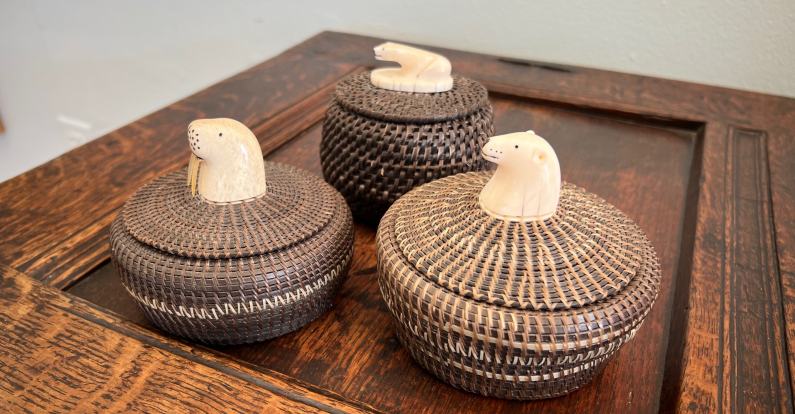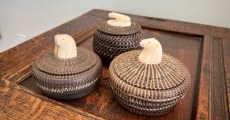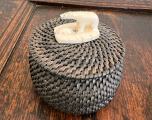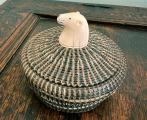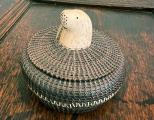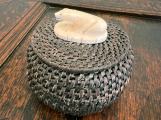Baleen Baskets - Hand made treasures 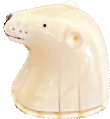
Baleen baskets, by law, can only be woven by Native Alaskans, a practice which began in the early 1900’s in response to the declining whale industry. The fibrous baleen plates in a whale’s mouth are a hard almost fingernail-like substance, often measuring over 6 feet in length, and are used to filter out plankton and krill for food.
Early weavers were primarily Inupiat men, who softened the large baleen plates in water, and then pulled them into thin strips which they used to weave the intricate baskets, a very time intensive practice. The finials on the lids, and starter disks at the bottom, are most often carved walrus ivory, depicting familiar Alaskan motifs, such as whale flukes, walrus and polar bears. These two master weavers were among the first Native Alaskan baleen basket weavers; Hubert Koonuk (1911-1994) from Point Hope, and Andrew Oenga (1910-1990) from Barrow, Alaska. more...

